By Harijot Singh Khalsa and Lakhpreet Kaur
I had a call with a lifelong friend of mine yesterday to see how he was fairing during these economic and socially uncertain times. To my pleasure, I found out that his job was unaffected, so his wife and two children are securely provided for.
As I spoke with him, he said something amazing about how his children, who are home-schooled, were handling not going to their normal schedule of activities and sports. His family has only gotten closer, and he feels like the richest man in the world. His daughter (8) said, “I’m grateful for what has happened because I found out that brother (11) is my best friend.”
While many families are enjoying this new time together, other families are experiencing the opposite. The lock-down and shelter-in-place orders are creating increased pressure and people are getting on each other’s nerves.
We want everyone to find the silver lining in these difficult times. Difficult times are opportunities for growth and connecting with the Divine. As Guru Sahib teaches us:
ਦੁਖੁ ਦਾਰੂ ਸੁਖੁ ਰੋਗੁ ਭਇਆ ਜਾ ਸੁਖੁ ਤਾਮਿ ਨ ਹੋਈ ॥
Ḏukẖ ḏārū sukẖ rog bẖaiā jā sukẖ ṯām na hoī.
Pain and suffering is the remedy, and pleasure is the disease. Because where there is pleasure, there is no desire for Waheguru; one does not experience the True Essence while in pleasure. Guru Nanak Sahib, Ang 469
So SikhNet and Kaur Life decided to team up and interview families and parents to learn tools, tricks and advice, from real life experiences, to help everyone get the maximum familial benefit.
Create a Schedule
Some kids thrive on a schedule. They’re used to a schedule at school, so having one at home can help reduce stress and give your days structure.
Kiran Kaur (Canada, kids aged 4 and 8) has a routine with a set time every evening for Sehaj Paat, Kirtan, a bedtime sakhi, and Kirtan Sohila . “Without schedule they have no structure,” she said. “Without structure they get bored and argue and find reasons to pester everyone.”
Deepinder Kaur aka Sirjana Artist (Texas, kids aged 17, 13 and 8) experienced the same thing. “Time management is the key to keeping everyone from going crazy,” she said. “We have a timetable that everyone follows. We divided the day into 3 main categories; school, social, and family time. It is not perfect every day, but there is a guideline that is established and we all try our best to follow it.”
Having a schedule also helped Tanveer Kaur (Canada) aka Playing With Painti teacher and her kids (aged 7, 3, and 5 months old) feel calmer. “Before, I felt scatter-brained and I didn’t know what to do when,” she said. “Now my days go much more smoothly.” Tanveer suggested trying to create the schedules with your kids, “It helps them have ownership over their days and it reduces their anxiety when they know what’s coming next.”
Having some flexibility in your schedule can be beneficial too. “The day follows a learning timetable that we do our best to stick to but we are not slaves to it: we allow the kids to lead, to a certain extent,” said Navrup Kaur aka Sikh Mum (UK, kids aged 11, 5, 2, newborn) “If they are really enjoying science or maths – then we let them continue with it.”
“I prepare all the days/week learning in advance (usually the Sunday) and always have extra materials if they get through work or activities quicker than expected,” explained Navrup. “I can see this may seem too structured for some children and parents but I feel it’s been extremely successful for us as I really enjoy the day with the kids and in turn, they are loving it…I can see they are motivated and are ready to learn and follow the timetable.”
Or Don’t Have a Schedule
Navrup said a schedule does not have to be robust and explained that, “Even sticking to set wake up and bedtimes can have an impact.”
But, sometimes, schedules just don’t work! It’s okay! Don’t beat yourself up about it.
“I tried to implement a schedule and wrote it all out on our white board,” said Kiranjot Kaur aka That Sikh Mama (Canada, kids aged 11, 8, and 4.5). “We tried that for about a week and I noticed that it wasn’t working for us. So, now we have created a points system. They have to earn six points a day to earn their screen time.” The kids can earn points by doing things like chores and homework. There are also demerits in Kiranjot’s family and the kids can get negative points for bothering each other or speaking disrespectfully. “It helps them be proactive because they have something to work towards.”
“During spring break we had no routine,” Kiranjot added. “We just let them chill and relax.”
Doing Fun Sikh Activities
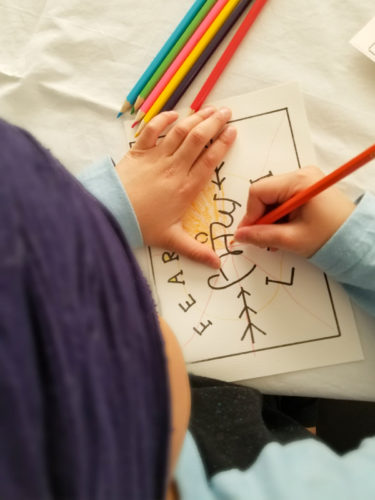
With fewer social obligations, transportation logistics, and commute times, many families are seeing this time as a way to add Sikh activities to their schedules.
“Our schedule has Sikhi activities within it and we are always doing Sikhi workshops and games with the kids,” said Navrup. “The opportunity at home is allowing us the gift of time and to implement even more – which is a blessing.”
Here are a few ideas that parents have shared:
Activities:
-Make housework fun like cleaning the patio and having a water fight. – Navleen Kaur (UK)
-Play badminton in the yard, do TV yoga or try iPad workouts. – Kiran Kaur
-Listen to a Sakhi on Sikhnet – Tanveer Kaur
-Check out Kiddie Sangat – Tanveer Kaur
-Color and makes crafts – Tanveer Kaur
-Check out SikhNet’s animated stories
Gurmukhi Games:
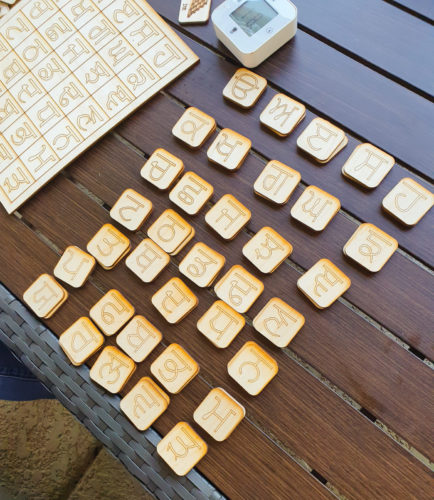
-Letters: Pick a Gurmukhi letter for each day and explore a room to find 5 things that start with that letter. For instance, ask your kids, “What’s for dinner tonight? How many ingredients start with the letter of the day?” – Deepinder Kaur.
–Deepinder Kaur created some Gurmukhi learning games, like Play with 35 that they play with their youngest. The Gurmukhi memory card game and Gurmukhi stamps are fun ways for their second grader to keep learning.
Baani Games: Sometimes, Deepinder will pick a Baani and ask the kids: How many raags are in that baani? How many paurees? How many times is a certain word mentioned in a Baani? What are the different spellings of Nanak in a Baani?
Sikh Presentations: Have your kids research a topic in Sikh history and have them give a presentation or skit on that topic. – Narup Kaur & Kiranjot Kaur
Virtual Sangat: Invite your friends and family to join in a video chat to do Gurbani virchar or kirtan. There so many programs that are now online, including Virtual Sangat where 20 min of simran happens everyday. – Kiranjot Kaur
Celebrate Sikh holidays (like Vaiskahi or Gurpurab) in a fun way. Create a banner, make decorations, light up the house, give presents, make chalk drawings on the driveway, make degh and cupcakes for neighbors, clean your kakars, watch a movie, make cards and mail them to friends and family, walk or drive to Gurdwara and metha tekh from outside, practice gatka, put on a Vaisakhi theatre show, or give history presentations. – Navrup Kaur
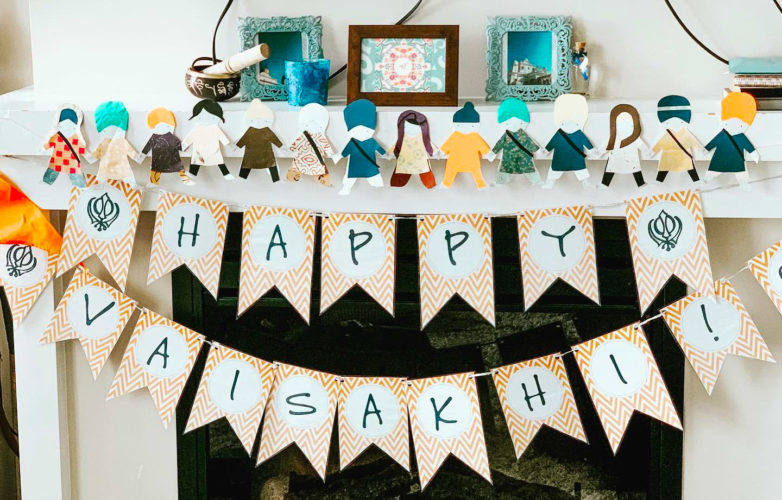
Infuse your time with Sikh Values
In times of need, many Sikhs turn to Gurbani for direction and solace. The parents we interviewed all looked to Sikh values as a way to guide their family and their daily actions.
Bani and Discipline
All of the parents we talked to try to set aside time for Sikh activities. Many parents start their kids’ days with Mool Mantra or Japi Ji Sahib and conclude it with Rehras, Kirtan Sohila, Kirtan, or Ardas. “It’s nice to see that the kids are learning their bani faster because we do it everyday now,” said Kiranjot.
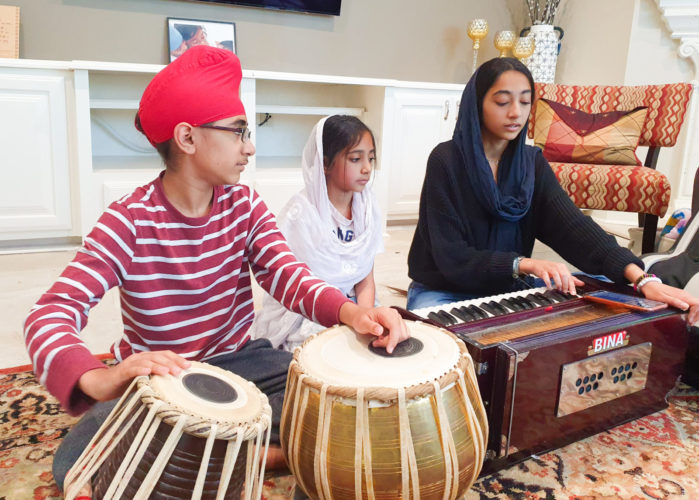
Dr. Preeti Kaur has taken on a different approach. Instead of carving out set times, she has been more hands-off. “I’ve moved away from actively saying ‘paath karo’ or ‘Punjabi bolo’”, she said. “I’ve been passively observing them. If there is Kirtan playing, I don’t insist that they actively listen or hang around so I can get them to learn one more Shabad. I stopped random Punjabi conversation starters. I’ve surrendered my efforts in active teaching. To my surprise, it’s been eye opening for me to discover that my son does Japji Sahib without being prompted. My daughter randomly starts practicing kirtan. In a time of such uncertainty, it brings me faith that these kids have embraced a part of Sikhi as their anchor. I couldn’t be any more grateful for this as a parent.”
Navleen Kaur and her family was already doing prakash and sukhaasan seva of Sri Guru Granth Sahib Ji every day. Recently, they had the idea for their son (age 10) to take hukam for the first time. In his words, “I opened a random page, like we always do, and that page ended up being a very special hukamnama to me because my name is Meharvaan Singh and in the hukamnama it said ‘Meharvana’. It was like Guru Ji was speaking to me, which I really enjoyed and liked. I feel very blessed.” He added, “I feel like I had a really deep connection with the Guru because it’s not very common that your own name pops up on a random page. It’s really, really, really, really emotional for you. You feel like you’re connecting with Waheguru in a subtle way that makes you feel so special and unique.”
Being Optimistic
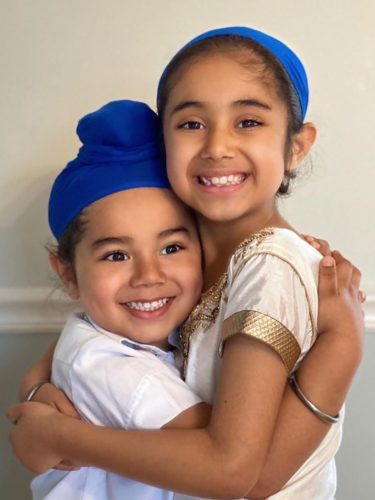
Without a doubt, stress, chaos, and uncertainty are gripping many families. While acknowledging these feelings, many families are trying to re-orient themselves to be more optimistic. For instance, Kiranjot says she wakes up every day and tells herself, “Today’s a good day to have a good day.” Similarly, Navrup finds “This time at home is a wonderful blessing.”
Tanveer echoed this sentiment and said, “In this craziness, I try to put a positive spin on things. This is time we normally would not have had with our kids. I ask myself, ‘What are our priorities as a family? How can we take advantage of this time? How can we stay in chardi kala?’”
Shukrana, or living in gratitude, is a value that guides Deepinder’s family. She said they are trying to be thankful for what they have, that they are safe and together. The other values that are pillars of her family are sehaj and ardas. “Sehaj guides us to be calm and do what is expected of us during tough times. Taking one day at a time and finding different ways to solve issues. And ardaas for all those who are going through tough times around the world. Praying for sarbat da bhala (may everyone prosper).”
“It’s been a gift to just pause, live in the moment, and count our blessings,” said Preeti.
Don’t Be So Hard on Yourself
Don’t feel like you have to be a perfect parent to be a good parent. So what if you don’t have Pinterest-worthy banana bread or an Instagram-esque craft closet.
Both Kiranjot and Tanveer said they initially felt overwhelmed with all the new information and didn’t know where to start. Their advice is to just do one new thing a day, instead of trying to do everything at once. And remember, this is a big upheaval for the entire family; it will take time to adjust so be patient with them and yourself.
“It’s all trial and error,” reassures Navrup.
“Things haven’t gone the way I envisioned them to be, and I’m learning to accept that that’s okay,” said Kiranjot. “I put this pressure on myself of perfection and that’s just not how life works. I’ve accepted that we’re gonna have some good days and we’re gonna have some not so good days.”
Recognize that this is a challenging moment and give yourself grace. It’s okay if you want to express your emotions. “We do go crazy sometimes,” said Kiranjot. “It’s not realistic to think otherwise. Sometimes my husband and I look at each other and we feel like crying, sometimes we laugh.”
Kiranjot’s advice for other parents, “Just know, we are all struggling in some way or another. Don’t assume everyone’s lives are perfect because of what they post on social media.” At the end of the day, Kiranjot reflects on what went right, not on what went wrong. “I look for the good moments and try my best not to expect perfection.”
Kids’ Mental Health
This can be a scary time for kids. The uncertainty alone can be nerve wracking. Here are a few ideas from Navrup on how to be mindful and care for your kids’ mental health:
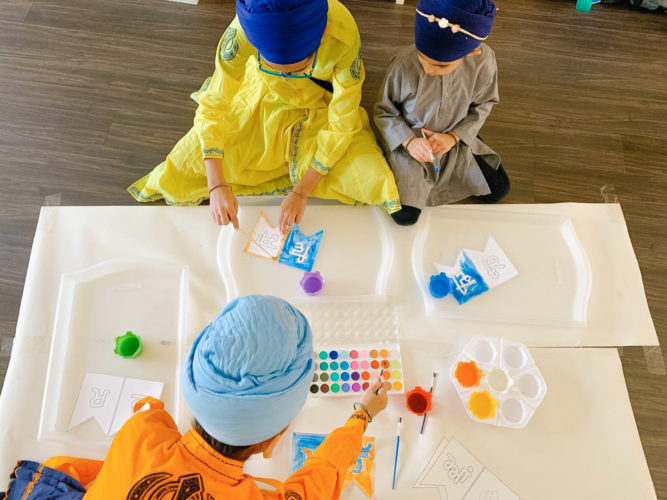
-Avoid watching the news too much around your children.
-Reassure your children about grandparents and those who are vulnerable.
-Try to ensure your children are face-timing with family and friends from school regularly.
-Try to encourage your children to take fresh air – if not in the garden/yard then on daily walks.
-At dinner time, check-in with your children collectively on how they are feeling and ask if anything that is upsetting or worrying them. Try to do this on a one-to-one basis also. Sharing their feelings can avoid any pent up emotion or fears that can manifest in other ways later on.
Make Time For Yourself
While focusing on your kids and family, you can easily lose sight of yourself and your own health. Don’t forget, self care is vital.
Here are a few tips:
-Share workload with your partner, if possible. – Navrup Kaur
-Use “key words” with your spouse. For example, “Kiran, do you want a cup of tea?” means, “You don’t seem yourself. Check your emotions.” Kiran Kaur
-Have your kids chip in with chores. It builds life skills and takes some load off of you. – Kiranjot Kaur
-Meditate or do simran – Deepinder Kaur
-Engage in a hobby for fun like painting, reading, doodling or sketching. – Deepinder Kaur
-Express how you’re feeling to your family. Be explicit about what you need to feel better.
-Set up new roles and responsibilities to divide the new workload during this time.
-Take time to rest, even if it’s only 15 mins.
-Emergency brake! Nirinjan Kaur (Canada) paid her 10 year old $10 to play with the younger son (2.5 years) for an hour so she could meditate.
“We need to take out some time for ourselves,” said Deepinder. “While caring for our family we forget it. We need to recoup and rejuvenate….It is very important for everyone to have a quiet downtime. It cultivates Sehaj.”
Recognizing the importance of giving each other space and time. “Allow each person to retreat and have quiet time alone,” suggests Sat Hari Kaur Khalsa.
Last Notes
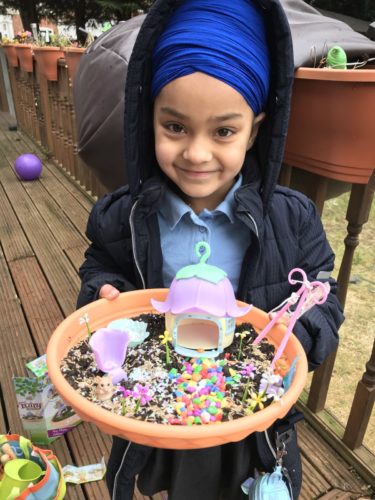
Deepinder reminds everyone that “Parenting is a journey. It comes with challenges, a lot of learning and growth. We sow the seeds of love and patience, and reap the harvest of treasured memories. So make memories. Take photos, make videos, go in the backyard, and smell the flowers.”
“We can learn so much from our children,” said Navrup. “They are little messengers of Vaheguru.”
Meharvaan Singh gave a message for children his age, “I think everyone else out there should try and take a hukamnama because it’s really blessed. You get a message from the Guru, it’s like he’s talking to you. It’s very spiritual and you feel like you’re deeply connected….”
Resources
Bhajneet Singh https://www.instagram.com/bhajneet/
Dilmeet Kaur https://dilmeetkaur.com/blog
Kiddie Sangat https://www.kiddiesangat.com/
Miss Kaur Humanitites https://www.instagram.com/misskaurhumanitiesteacher/
Playing with Painti https://www.instagram.com/playingwithpainti/
Sikh Coalition Kids Corner https://www.sikhcoalition.org/blog/2020/learn-fauja-singhs-story-kids-corner/
Sikh Dad https://www.instagram.com/sikhdad/
Sikh Mum https://www.instagram.com/sikhmum/
Sikh Net https://www.sikhnet.com/kids-youth
Sikh Student Learning https://sikhstudentlearning.co.uk/
Sirjana Arts https://www.sirjanaarts.com/s/shop
That Sikh Mama https://www.instagram.com/thatsikhmama/
Three Big Questison for Frantic Family https://www.amazon.com/Three-Big-Questions-Frantic-Family/dp/B008VD5K9Y/ref=sr_1_2?dchild=1&keywords=three+big+questions&qid=1586978257&sr=8-2
Virtual Sangat https://www.instagram.com/virtualsangat/
Feature image by Kiran Kaur.



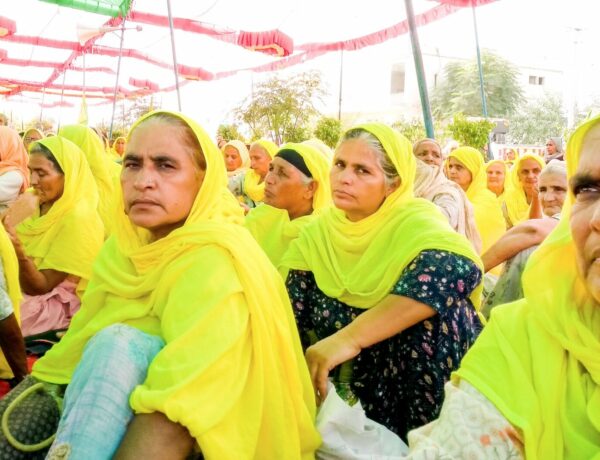

No Comments